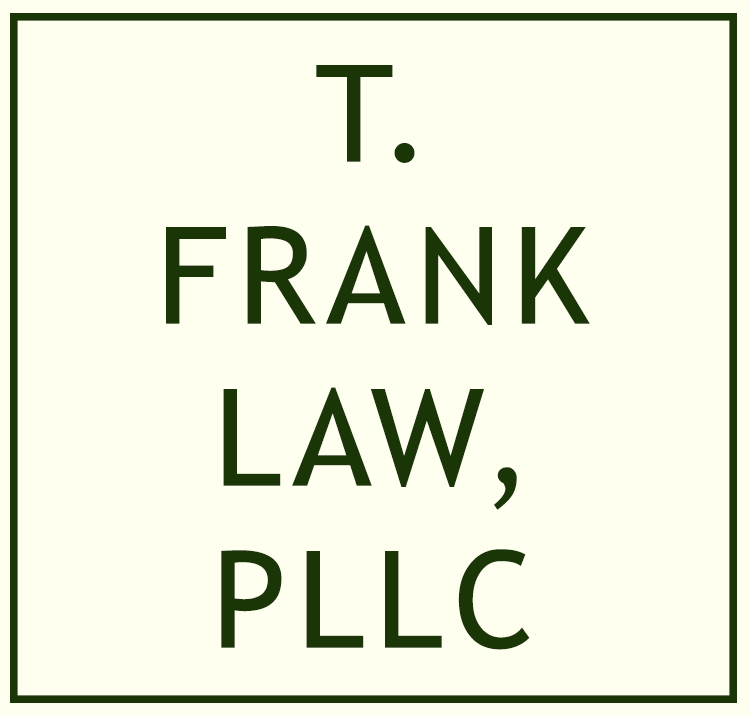Massachusetts Probate Litigation, With Joseph N. Schneiderman
T FRANK LAW’s Estate Planning Blog is proud to share the following post, co-written with Attorney Joseph N. Schneiderman, on the Massachusetts Appeals Court’s recent decision in Cusack v. Clasby, 94 Mass. App. Ct. 756 (2019), an appeal involving objections to a final accounting by a Personal Representative. Attorney Joe Schneiderman has an appellate practice in Massachusetts and Connecticut and has argued three times in the SJC and written amicus briefs in six cases. He can be contacted at connlawjoe@gmail.com.
From the long-winded “let me tell my side of the story” affidavit of an objector to those that are more precise, if speculative, a motion to strike is a quiver away.
Depending on the underlying action, an objection, with a supporting affidavit filed in probate court, might be filed to contest the merits of an action, or, more concerning perhaps, because of a lack of communication or trust involving a fiduciary.
For purposes of this article, let’s focus on objections filed in connection with the filing of an account as it relates to a probated estate. It’s not unusual for concerns to arise about the manner in which an estate is being probated. After all, an unrepresented beneficiary might have inadequate leverage to address concerns about how the personal representative is handling the estate. Is filing an objection to an account the best mechanism to address concerns? Depending on the information known to the interested person and the status of a matter, a petition to remove the personal representative might be the appropriate course. However, if a first and final account has been filed, and the deadline for objections has been set, a potential objector has a limited time period to act. Let’s take a look at a recent case: Cusack v. Clasby, 94 Mass. App. Ct. 756 (2019).
Catherine Cusack died in June 2014, survived by eight children-all equal heirs. Clasby, one of her daughters, the administrator of her estate, petitioned to probate the estate in October and filed a complete settlement in December 2015. Three of Clasby’s siblings objected, asserting that the final accounting reflected disbursements that had not in fact occurred. A judge in the Probate Court struck the objections, approved the final accounting, and settled the estate. The siblings appealed, asserting that settling the estate was premature.
The Appeals Court rejected this contention. The Appeals Court noted that before Massachusetts adopted the Model Uniform Probate Code, settlement was indeed incomplete until all payments were made by the estate. See former G.L. c.206, §22. However, the MUPC repealed and displaced this principle. G.L. c.190B, §3-1001. Similarly, the MUPC also permitted Clasby, as an administrator to approve accounting and distribution of the estate.
Thus, the Probate Court judge had authority to jointly approve the accounting and settlement of the estate. Indeed, the order furthered the purpose of the uniform probate code to spur a “speedy and efficient system for liquidating [an] estate of [a] decedent and making [distributions.]” G.L. c.190B, §1-102(b)(3). The siblings were not without recourse-they could petition for contempt for violations of a court order. Finally, the Appeals Court rejected challenges to and requests for attorney’s fees.
Contempt is indeed a classic solution for violations of a court order and a decree settling an estate is certainly a court order. Contempt is also the bread and butter of the Probate Court. Contempt actions also provide for fee-shifting - that is, someone can recover their attorney’s fees if they are successful.
Pursuing a contempt is a double-edged sword. Although the case proceeds under the same docket number and does not require a filing fee - and usually occurs promptly - the rules of civil procedure can still apply. Contempt has to be proven by clear and convincing evidence and not every violation of a court order constitutes a contempt. Indeed, ambiguous court orders do not lend themselves to contempts. A contempt action thus has deleterious potential to prolong and reopen a seemingly settled estate-and thwart the spirit of speedy settlement under the MUPC. It will be interesting to see how contempts play out in already backlogged probate courts.
